MANCHESTER, N.H. — President Trump told a crowd of about 400 people here Monday that a get-tough approach with the death penalty for major traffickers is the key to beating back the opioid crisis that claims thousands of American lives each week, including an average of more than one Mainer every day.
Trump emphasized cracking down on drug dealers during a nearly 50-minute speech at Manchester Community College. He also outlined a renewed effort to educate the public on the risks of illegal drug use, announcing a new government website and a plan for a new anti-drug advertising campaign.
The president also highlighted a new push to rein in the manufacturers of powerful painkilling drugs that are at the heart of the crisis, saying the Department of Justice is prepared to bring new civil legal actions that would help limit the abuse of prescription drugs.
He said doctors would play a key role, and he vowed that the number of painkiller prescriptions would be cut by one-third under his administration.
Twice during the speech, Trump promised he would pursue the death penalty for the most serious traffickers, while saying he has warned China and Mexico to stop sending illicit shipments of fentanyl, a powerful synthetic opioid, to the U.S.
“Together we will end the scourge of drug addiction in America once and for all,” Trump told the cheering audience. “We will win. We will beat it. We will be tough. We will be smart. We will be kind. We will be loving. We will do whatever we have to, but we are going to win.”
PUSHBACK ON DEATH PENALTY PLAN
Trump highlighted several personal stories of overdose deaths from New Hampshire, and he praised individual law enforcement officers for their efforts in investigating and arresting drug dealers.
Without mentioning specifics, he also said that in speaking to leaders of other countries, he has learned that they don’t have as much of a drug problem as the U.S. because they use the death penalty to punish dealers.
“Take a look at some of these countries where they don’t play games. They don’t have a drug problem,” Trump said. “We have court cases that last 10 years and then they get out in the end. We have got to be tough. We have to be smart. We have to change the laws. But the ultimate penalty has to be the death penalty.”
He also said, “We can have all the blue-ribbon committees we want, but if we don’t get tough on the drug dealers we are wasting our time, and that toughness includes the death penalty. Some of these drug dealers will kill thousands of people during their lifetime and destroy many more lives than that.”
At the same time, Trump acknowledged, “Maybe our country is not ready for that.”
The American Civil Liberties Union issued a statement Monday opposing Trump’s proposal and noting that the U.S. Supreme Court has repeatedly rejected death sentences in cases where there has been no murder.
“This approach is also disturbingly reminiscent of the war on drugs, which set back American drug policy for decades and codified harm to black and brown people – laws we have just begun to reverse,” said Jessalyn McCurdy, deputy director of the ACLU’s Washington legislative office. “And like the war on drugs – with a focus on extreme punishments instead of the root causes of drug use, and no provisions to address racial disparities – the White House’s proposal will almost certainly fail to solve the actual crisis facing the country.”
Trump also announced a new program by Adapt Pharma, maker of the lifesaving overdose antidote naloxone, known largely by its brand name Narcan. Trump brought Mike Kelly, the company’s president, to the stage to announce the company would be providing free doses of the antidote to U.S. high schools, colleges and universities.
Kelly said the company would provide four boxes of the drug to colleges and universities, and two boxes to every high school that wanted it. He said the company also would provide educational materials on the antidote and about “the dangers of opioids and the risks and the benefits of having Narcan nasal spray near where opioids are.”
TRUMP: WALL WILL KEEP OUT DRUGS
First lady Melania Trump introduced her husband at the Manchester event and said the crisis was one she had taken a personal interest in. Melania Trump made specific mention of programs aimed at helping drug-affected newborns. “I’m proud of this administration’s commitment to battling this epidemic,” she said.
President Trump largely stuck to his opioids message Monday, although he did enter political territory when he charged that Democrats had resisted his effort to build a wall on the southern U.S. border with Mexico, where he said 90 percent of the heroin smuggled into the U.S. originates. He asserted that “Democrats will eventually agree to build a wall and keep the damn drugs out.”
Opioids – which include prescription painkillers, heroin and synthetic drugs such as fentanyl – killed more than 42,000 people in the U.S. in 2016, more than any year on record, according to the U.S. Centers for Disease Control and Prevention. Trump has declared that fighting the epidemic is a priority for his administration, but critics say the effort has fallen short.
Last October, Trump declared the crisis a national public health emergency, short of the national state of emergency sought by a presidential commission he put together to study the issue.
“We call it the crisis next door because everyone knows someone,” Trump senior adviser Kellyanne Conway said in Sunday’s media briefing, the Associated Press reported. “This is no longer somebody else’s community, somebody else’s kid, somebody else’s co-worker.”
In August, Trump angered many in New Hampshire when he referred to the state as a “drug-infested den” in a phone conversation with the president of Mexico, according to a transcript of the call published by The Washington Post.
THE CHALLENGE IN MAINE
Trump sought to blame Mexico for producing the heroin that was causing overdoses in New Hampshire, but public health data shows that most of the deaths are being caused by fentanyl and its derivatives, which are synthetic opioids produced primarily in China.
Drug overdoses killed 481 people in New Hampshire in 2016, a rate of 39.0 deaths per 100,000 people, third behind Ohio (39.1) and West Virginia (52.0), according to data from the federal CDC. Maine was 11th on the list with 28.7 deaths per 100,000 people, just behind Rhode Island (30.8) and in front of Connecticut (27.4).
Trump administration officials made note of the opioid epidemic’s impact on Maine when Conway and then-Department of Health and Human Services Secretary Tom Price visited the state in May 2017. The state saw a record 418 drug overdose deaths in 2017, an 11 percent increase over the previous year.
Opioids, including prescription and illicit drugs, were responsible for 354 of the deaths, and fentanyl supplanted heroin as the deadliest substance. Unlike heroin, which is manufactured from poppy plants, fentanyl can be made in a laboratory and is easier to smuggle because it’s sold in tiny doses.
Scott Thistle can be contacted at 713-6720 or at:
sthistle@pressherald.com
Twitter: thisdog
Send questions/comments to the editors.


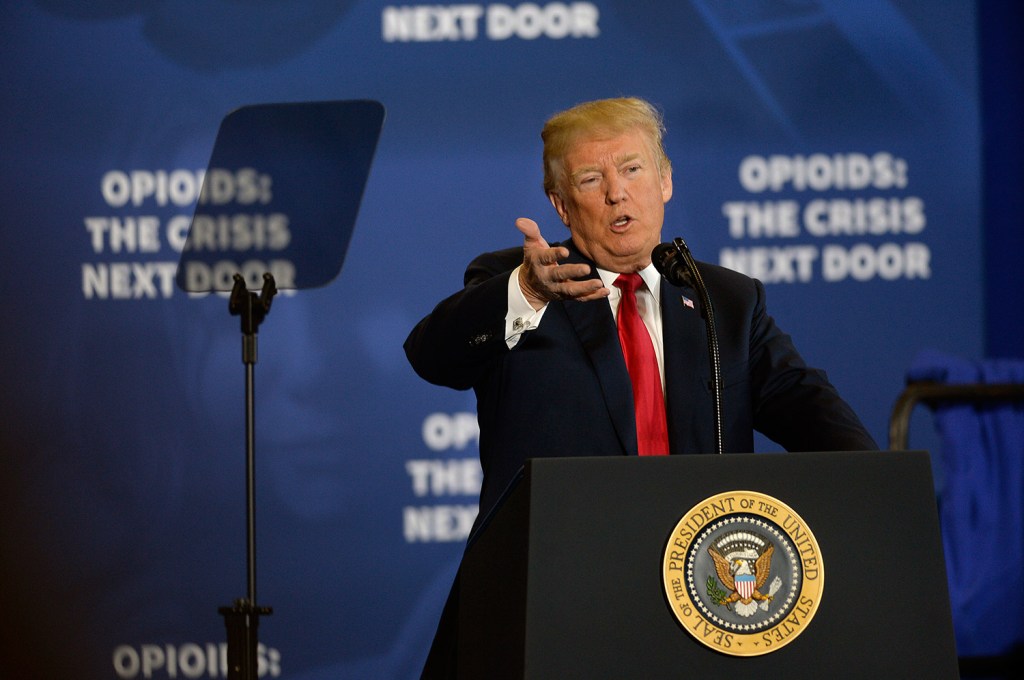
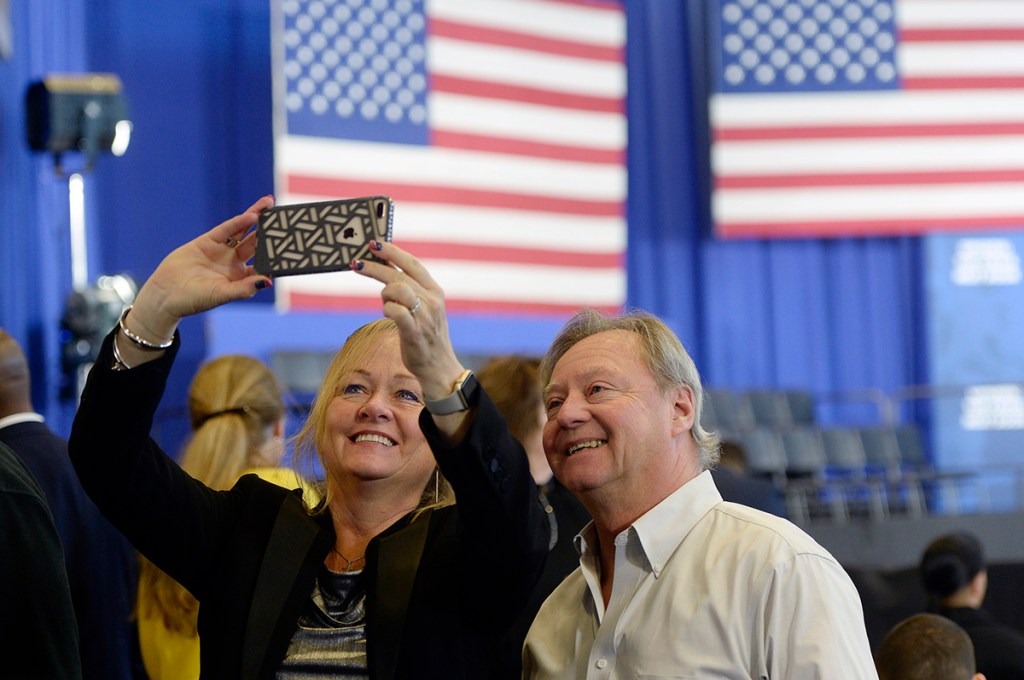
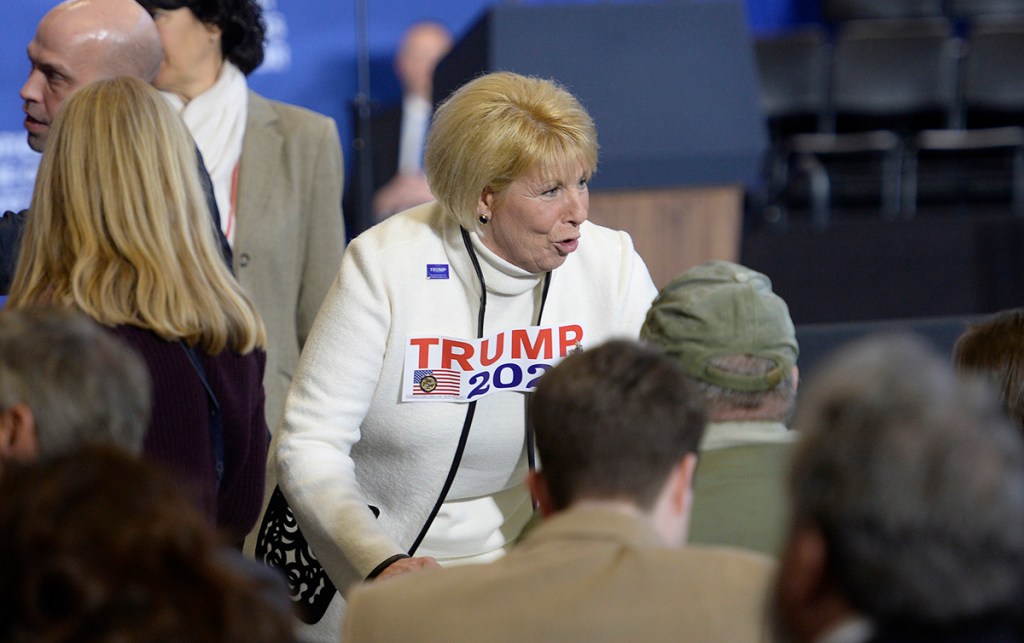
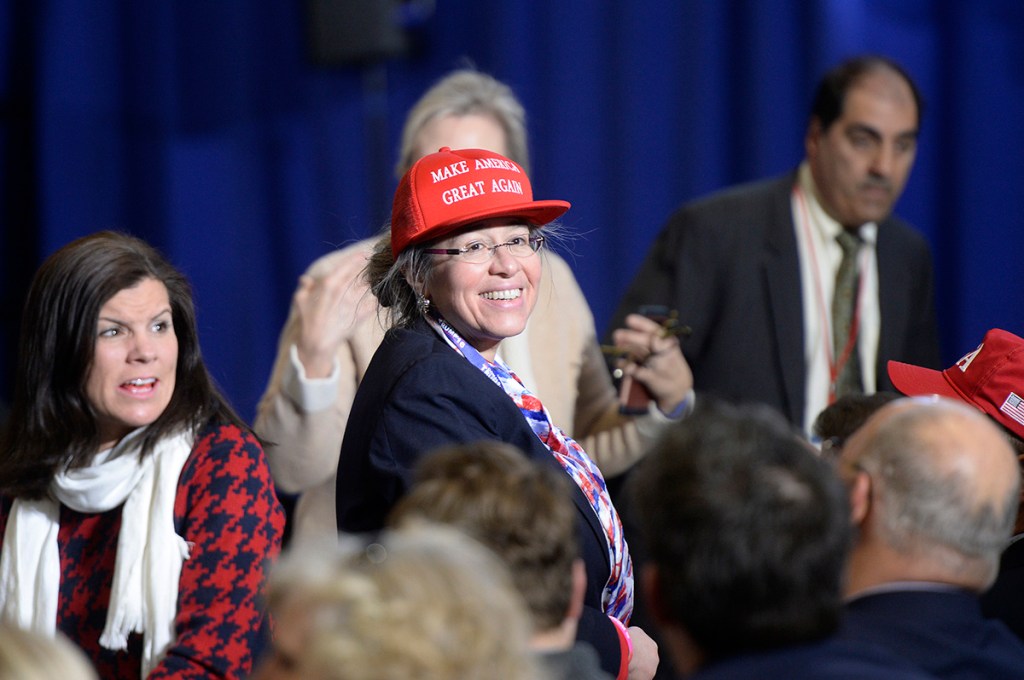
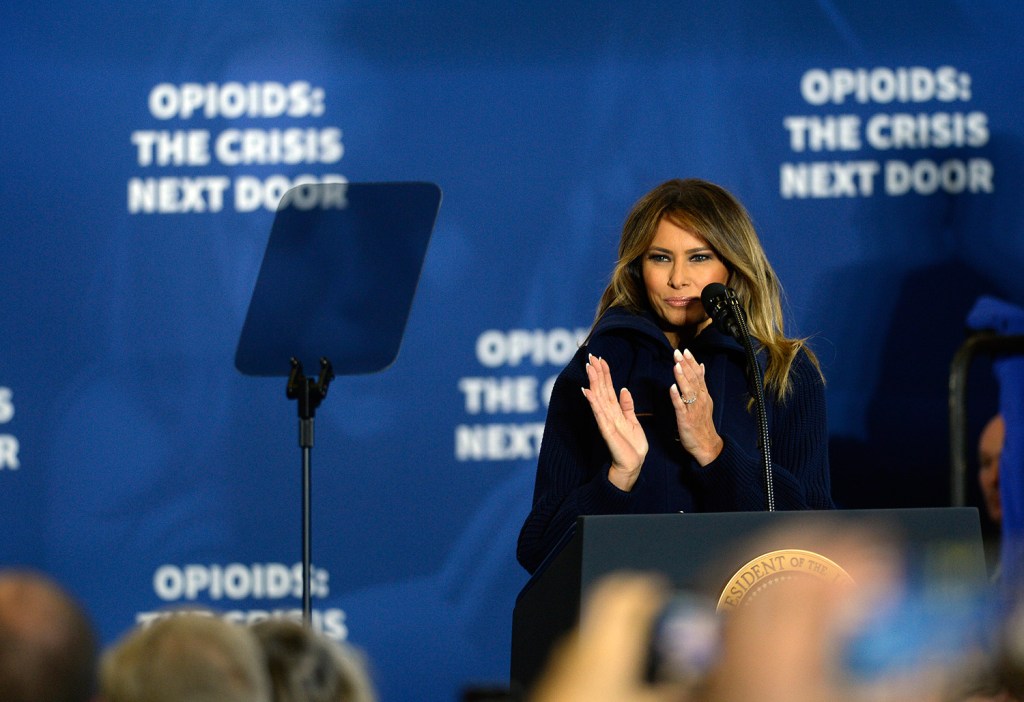
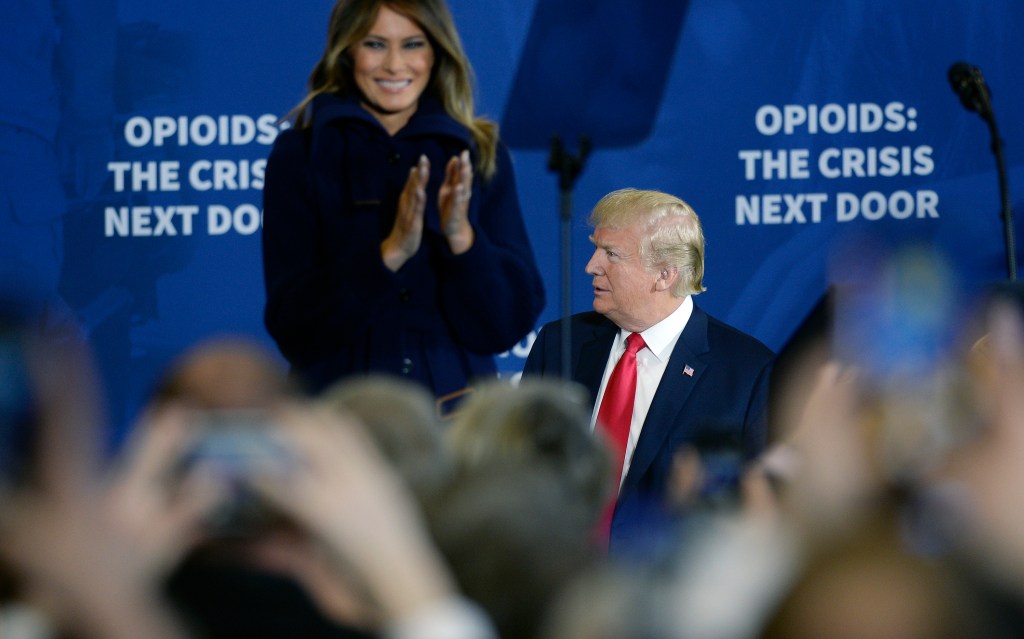
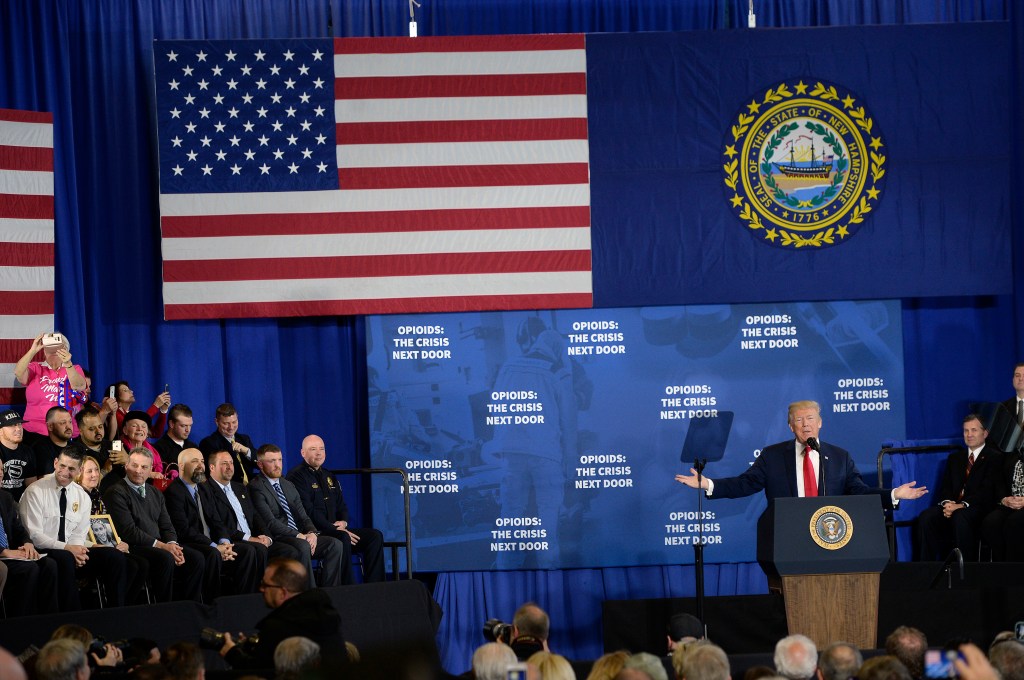
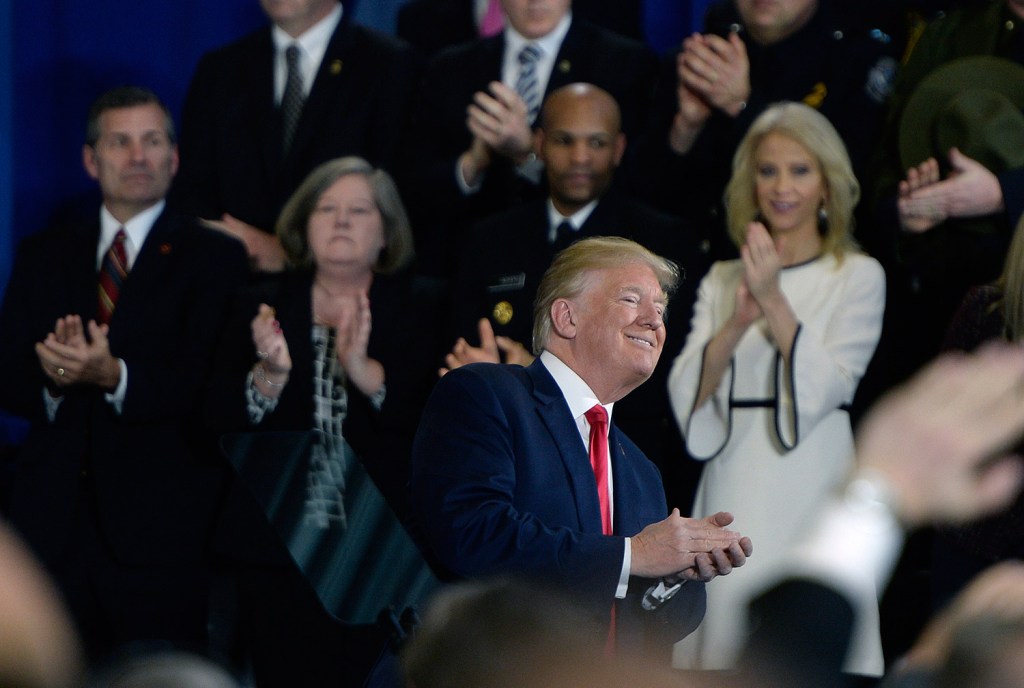
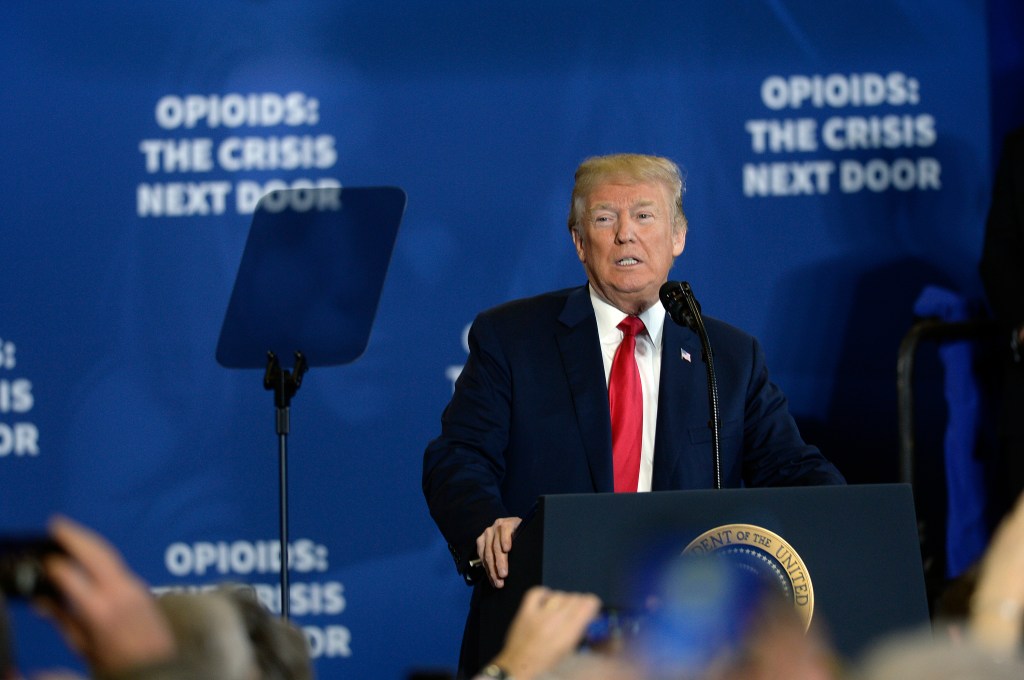

Comments are no longer available on this story